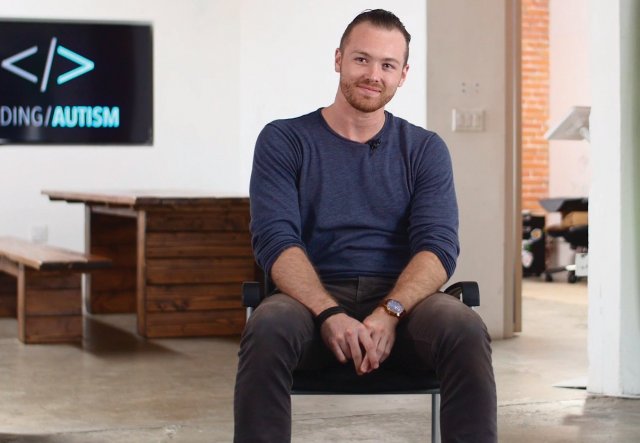Cal Lutheran startup bound for U.N.
Company will share efforts on behalf of the autistic
The eyes of the world will be on a startup born in Thousand Oaks next month when its founders present their autism research at the United Nations.
Coding Autism, which was conceived in a Cal Lutheran University business class and developed at Hub101, an incubator affiliated with the school, was selected to participate in Massachusetts Institute of Technology’s Solve Global Challenges competition, an event that brings problem-solvers together to tackle the world’s most pressing issues.
This year, the program features brain health among its four core areas of concern.
Coding Autism trains adults on the autism spectrum in professional skills such as software engineering, quality assurance and web development. It’s one of the 16 companies that will pitch their ideas on improving brain health Sept. 17 at the U.N. in New York City.
If selected by a panel of judges as a winner in its category, Coding Autism will be awarded investors, partners and support from MIT’s network of corporate and government leaders.
Oliver Thornton, a graduate of CLU, is the company’s co-founder. He has significant insight into autistic adults: He and two of his brothers are on the autism spectrum.
The 24-year-old said he’s a little nervous about pitching his company before such a high profile audience.
“It’s an incredible opportunity to be selected,” he said.
Individuals on the autism spectrum experience a wide range of conditions that can include challenges with social skills, repetitive behaviors, speech and nonverbal communication. There is not just one type of autism, and individuals can range from nonverbal to high-functioning.
According to the Centers for Disease Control, autism affects 1 in 68 children in the United States. An estimated 50,000 teens with autism become adults—and lose school-based autism services—each year. Around 80 percent of adults with autism are unemployed.
Thornton came up with the idea for Coding Autism while earning his degree in business administration at CLU. He entered it in the school’s 2016 New Venture Competition and won.
Co-founder Austen Weinhart has known Thornton as a family friend since childhood. The 27-year-old said individuals on the spectrum need a different type of job training. What sets Coding Autism apart from other employment programs, he said, is that it seeks to change the dialogue around autism, approaching it as another form of diversity—neurodiversity—instead of a disability. The program also distinguishes itself with its social skills program, which includes career, health and financial coaching.
“Dealing with people on the spectrum, the biggest hurdle isn’t tech abilities,” he said. “It’s social skills, the soft skills.”
While he doesn’t know what it’s like to have autism, Weinhart said, he does know that people with autism deserve a closer look.
“I understand the struggle of people not recognizing you have something to offer because you’re not as vocal,” he said. “The quiet people don’t get recognized.”
Beth Brennan is an associate dean with CLU’s Graduate School of Education and sits on Coding Autism’s advisory board. As more students with autism graduate and wind up on the doorsteps of universities and corporations, she said, the professional world needs to find a way to tap into the potential of these workers.
“As a society, we don’t understand neurodiversity,” Brennan said. “This is for everybody’s benefit to work with individuals with autism and to understand not everybody thinks the same.”
Mike Panesis is the executive director for CLU’s Center for Entrepreneurship and an advisor for Coding Autism. He said Thornton’s age gives him an advantage.
“Twentysomethings make great entrepreneurs because they’re so ignorant they don’t know what’s impossible,” he said.
Before its presentation in the Big Apple, Coding Autism is asking for the public’s help. MIT wants to know what the public thinks about the finalists’ solutions. To vote online, visit solve.mit.edu/challenges/brainhealth/solutions/380.
The solutions with the most votes from the public will receive a Solve Community Award.
To learn more or to vote for Coding Autism, visit codingautism.com.
--- Published in the Thousand Oaks Acorn on Aug. 31, 2017
